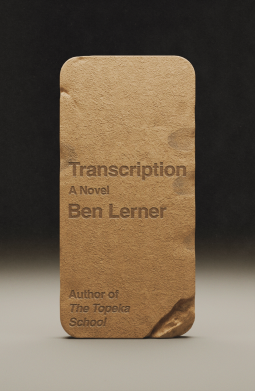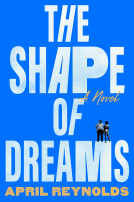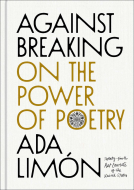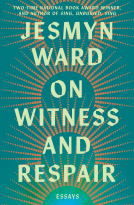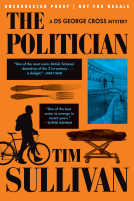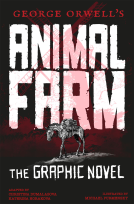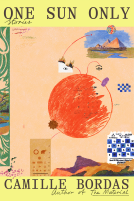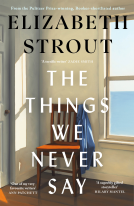Transcription
A Novel
by Ben Lerner
You must sign in to see if this title is available for request. Sign In or Register Now
Send NetGalley books directly to your Kindle or Kindle app
1
To read on a Kindle or Kindle app, please add kindle@netgalley.com as an approved email address to receive files in your Amazon account. Click here for step-by-step instructions.
2
Also find your Kindle email address within your Amazon account, and enter it here.
Pub Date Apr 07 2026 | Archive Date May 07 2026
Description
From the “most talented writer of his generation” (The New York Times), a lightning flash of a novel that is at once a gripping emotional drama and a brilliant examination of the devices, digital and literary, we use to store—or to erase—our memories.
The narrator of Ben Lerner’s new novel has traveled to Providence, Rhode Island, where he is to conduct what will be the final published interview with Thomas, his ninety-year-old mentor and the father of his college friend Max. Thomas is a giant in the arts who seems to hail “from the future and the past simultaneously” and who “reenchants the air” when he speaks. But the narrator drops his smartphone in the hotel sink. He arrives at Thomas’s house with no recording device, a fact he is mysteriously unable to confess.
What unfolds from this dreamlike circumstance is the unforgettable story of the triangle formed by Thomas, Max, and the narrator, and an exploration of fathers and sons, male friendship and rivalry, and the challenges of parenting in a burning world. One of the first great novels about the early days of COVID, it is also a brilliant meditation on those technologies that enrich or impoverish our connection to one another, that store or obliterate memory. Full of startling insight, but written with the intensity of a séance, Lerner shows us how the air is full of messages, full of ghosts. Ultimately Transcription demonstrates what only a work of fiction can record.
A Note From the Publisher
Advance Praise
“Transcription is another masterful intervention from a writer of unparalleled exactitude and intelligence. Lerner's linguistic precision, stylistic brilliance, and philosophical range are not only thrilling things to encounter on the page, they are gentle surgical tools for a tender existential operation upon the reader. They crack open a profound reckoning with how we are living now, and the effect is genuinely startling. We call this fiction, but it is much, much more.” —Max Porter, author of Shy
“Transcription is both dizzyingly accomplished and disarmingly tender—an acutely elegant and forensic meditation on the disorientation of what it means to be alive now.” —Sophie Mackintosh, author of Cursed Bread
Available Editions
| EDITION | Other Format |
| ISBN | 9780374618599 |
| PRICE | $25.00 (USD) |
| PAGES | 144 |
Available on NetGalley
Average rating from 38 members
Featured Reviews
 Reviewer 375799
Reviewer 375799
Thanks to Farrar, Straus and Giroux and NetGalley for the ARC of this novel.
One of the fond memories I have of my time as a graduate English major were the days when we would sit around the conference table and go over, talk about, discuss, and even argue over a novel. Those exchanges answered questions, expanded themes you hadn’t considered, brought to light connections that were missed. The process of going over the novel with people who saw things you didn’t, whose take on the novel as a whole was different than yours, gave one a deeper appreciation of the novel, of what the novel was trying to accomplish when in the hands of the reader.
Ben Lerner’s *Transcription* is one of those novels I wish I had a room full of readers to go over the scenes with, the themes, the ideas. It is a short book with a fairly straightforward structure: A former student goes back to interview his famous mentor, things happen (I don’t like to give specifics in reviews), and the repercussions from that encounter make up the rest of the novel. Yet within the structure there are tangents, offshoots where we venture off to other times, other places. Lerner has the ability to create moments of philosophical, sometimes metaphysical, depth from the most mundane moments that pull you away from the main narrative to focus on this thought or idea, then cast you back to the story as if nothing has happened. But now you’re reading the main story with this additional little kernel of an idea floating around in your mind, and it can’t help but shift the interpretation of what you’re reading, adding a different color, a different tone. It’s masterful if sometimes maddening because that’s when I want to put the novel down and ask “Why?”
*Transcription*: Even the title is begging for interpretation. There are sections in the novel that read like transcriptions, sections of just back-and-forth dialogue, Q&A style. Does that give them more authority? More authenticity? What, exactly, is being transcribed? I’ve read Lerner’s other novels, so I know I have to come up with my own answers, my own interpretation. And this, fundamentally, is the pleasure of this novel. *Transcription* is a satisfying novel on one hand—the story feels complete, the final section complements the first section giving the novel an almost circular feel—but it does linger in the mind. Sitting here almost two days after finishing it, I am still thinking about many things in the novel: the importance of this or that scene, the brief appearances of certain characters, the meaning of the final section of text in the novel. Why the brackets [you’ll have to read the novel to understand]? The novel is short enough that I will probably reread it just to see if I can come up with answers to my own questions.
If I’ve muddled the review so you don’t know what I’m saying (which I tend to do), this is what I’m saying: *Transcription* is a very interesting, well-written novel with emotional depth that comes to a satisfying conclusion. And it is also a novel with great ideas and views that make you pause, nod your head, or shake it in disagreement, a novel that raises questions about the meaning of our existence in these recent times and the resonances from the past that continue to affect us in our present. The novel asks questions, and most great novels do.
 Aden M, Reviewer
Aden M, Reviewer
Thank you to NetGalley and Farrar, Straus and Giroux for an eARC of this novel.
This is a masterclass is brevity. TRANSCRIPTION might be the first great contemporary Post-COVID novel that tackles the nature of societal isolation and fear. I have mostly felt that contemporary novels of the past couple of years have shoehorned in conversations of the pandemic without serving the greater work of art (outside of Greenwell's SMALL RAIN, whose similar use of monologues and chamber storytelling could sit alongside this novel). Into this fear, Lerner interrogates the multifaceted nature of technology: tech that unites us, tech that distracts us, tech that forces our hand. In just 144 pages, he really analyzes the contemporary malaise of the tether to our devices. Ultimately, though, this is a novel of family. In 3 sections, Lerner creates a lush diorama of family in the 21st century, specifically along the father/child dyad. It's complicated and comparative, incredibly compelling until the last sentence. I cannot recommend this (and all of Lerner's fiction) enough. This should practically be required reading as human beings (with iPhones).
 Emily S, Reviewer
Emily S, Reviewer
Reading this book reminded me that I have wanted to read books by this author for some time and I am kicking myself that I haven't done so earlier. Transcription works well on a number of levels and the relatively simple structure opens up so many much more complex narrative enquiries. Above all though it is just very satisfying fiction; a well-written and constructed interrogation of the philosophical (maybe) and ethical considerations of representation, connection and memory. I read it very quickly and have then taken some time before considering feedback and I am struck by how much of an impression a very slight volume has left (even with twenty or so books read in the interim period). It packs a far greater punch than its page weight would suggest. Very grateful for the ARC which allowed me to read this early and to also set right the deficit of Ben Lerner books in my life. Off to buy his back catalogue.
A puzzlebox novella—delightfully spooky meta-moments about fictionality/reality, dryly funny, with Kafkaesque subplot about parenting a teenage daughter that I found fine and a covid plot that I found immensely moving. Thematically timely, but a totally refreshing take on the pandemic, "technology," etc.
 Elsbeth L, Media/Journalist
Elsbeth L, Media/Journalist
Elegant, enigmatic and engaging, Lerner’s latest is a short read but a rich one. Location and character are powerfully achieved, not least Thomas, the aging intellectual with his mittel-European style and brilliant mind. The two younger men, Ben and Max, are both foils for Thomas as well as modern representatives, struggling with technology and family, engaging with Thomas in affecting ways. Lerner is a master of sensitivity and a kind of transposition whereby normality slips into something else. Here the focus is on memory, but also past and present, the layers of experience and comprehension. It’s masterful stuff, reminiscent of, to me, of someone like Sebald who can play with reality and fiction without ever entirely revealing his hand.
Fine work.
More incredible work from Lerner. At an extremely tight page count (I believe sub 130) he manages to do it again with a symmetrical structure, once again using the act of conversation, or of storytelling, as a kind of emotional fulcrum (see Atocha Station, 10:04, etc.). When I first saw the book was so short I was skeptical but I needn't have been: it works, very well.
 Brecon L, Reviewer
Brecon L, Reviewer
If you have read anything from Ben Lerner before, you know that within a page his writing is singular and a voice of a generation. This book is short, but the economy of words, the story, the encapsulation of this very odd time we all went through ----so brilliantly delivered. Looking forward to reading it again as with all his works, there is plenty to ask, search for, and extract from his prose.
Thank you so much to Farrar, Straus and Giroux and NetGalley for the opportunity to read this.
Readers who liked this book also liked:
Jakub Politzer (Illustrator), Christina Dumalasova (adapter), Katerina Horakova (adapter)
Comics, Graphic Novels, Manga, General Fiction (Adult)
